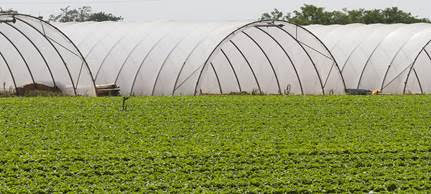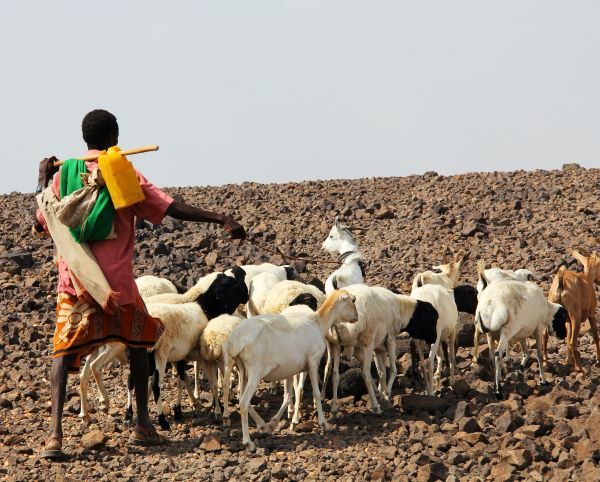Given their versatility and widespread utility, the agricultural films and bonding market is expected to experience increasing demand across industries.
According to a recent agricultural films and bonding market study, the future of the Agricultural Films and Bonding market looks promising, driven by increasing greenhouse adoption, advancements in materials and manufacturing, and the rise of precision agriculture.
“Manufacturers are focusing on producing more efficient and sustainable films to meet evolving needs. Additionally, the growing awareness of environmental concerns and the demand for high-quality produce will further fuel market growth,” stated the study in part.
“Overall, the market is set to expand significantly in the coming years.”
Made from polyethylene
These films which are typically made of polyethylene or other compounds, are widely employed in various agricultural practices.
They offer significant advancements over traditional crop-growing methods by helping prevent plant rot and waste. Agricultural films serve multiple purposes, including mulching, greenhouse covering, netting, and silage preservation.
Mulching, perhaps the most common application, involves the use of sophisticated film systems that, once installed, can endure for many seasons, promoting better yields while minimizing crop damage and land waste. These films are essential for initiating horticulture, hydroponic, or greenhouse systems, providing protective coverings that create optimal growing conditions.
By aiding plants in conserving water, soil, and nutrients, agricultural films facilitate efficient growth. Common materials used in their production include PE, LLDPE, PVC, PET, laminated materials, and others. While most agricultural films are opaque, some farmers opt for transparent or translucent varieties for specific purposes.
Market Dynamics of Agricultural Films and Bonding
Market dynamics in the agricultural films and bonding sector are primarily fueled by their increasing adoption in the greenhouse industry. While large-scale greenhouses contribute to this growth, there’s also a rising trend in smaller greenhouses globally, which fuels demand for agricultural films and bonding materials. These films play a crucial role in regulating temperature and moisture, shielding crops from frost and low temperatures, reducing heating energy consumption, and enhancing crop yield and quality.
Bonding processes are essential for connecting two or more films, providing structural shape and stability. Manufacturers are prioritizing the development of films that offer high-quality finishes on both flat and cylindrical surfaces. The majority of agricultural films and bonding manufacturers are situated in China and other South Asian countries, exporting their products to North America, Europe, and beyond.
Despite their benefits, agricultural films and bonding materials aren’t without limitations. They may prove ineffective during heavy rainfall, extremely low temperatures, or severe frost. Additionally, the initial investment in agricultural films is higher compared to traditional bare-soil planting methods. Significant costs are associated with film procurement, equipment such as transplanters designed for plastic beds, and additional labor. Furthermore, the removal of agricultural films is both costly and labor-intensive according to persistence market research.
Segment Outlook of Agricultural Films and Bonding
The Agricultural Films and Bonding market can be segmented based on the type of material, including Agricultural films (PE, LLDPE, PVC, PET, laminated materials, BOPP, CPP, and EVA), Twine (Sisal, Polypropylene, LDPE, and Others), and Netting (HDPE, LDPE, Polypropylene, and Others).
Segmentation based on color includes opaque, transparent, and translucent, while segmentation based on features comprises moisture-proof and water-soluble characteristics.
Furthermore, the market can be segmented based on the type of film, such as Stretch film, Shrink film, Metallized film, Release film, and Twist film. Process-wise segmentation includes blow molding, casting, multiple extrusion, and injection molding. Applications segmentation covers Covering of Greenhouse, horticulture, Mulching (Ground Covers & Crop Covers), Silage (Stretch wrap, Bags, and Sheets), Twine (Bale and Others), and Netting (Shade, Anti-hail, Anti-insect, and Others).
Regional Outlook for Agricultural Films and Bonding
The regional coverage for the Agricultural Films and Bonding market includes North America, Latin America, Eastern Europe, Western Europe, Asia Pacific Excluding Japan (APEJ), Middle East and Africa (MEA), and Japan.
APEJ is expected to witness high demand due to significant investments and manufacturing units in the region. The markets in India and China are still in the growth stage, which is expected to fuel market growth for the next decade.
Market Players in Agricultural Films and Bonding
Key players in the Agricultural Films and Bonding market include Dai Nippon Printing Co., Ltd., PLASTIKA KRITIS S.A., NOVAMONT S.P.A., BASF SE, Berry Plastics Corporation, Exxon Mobil Corporation, Industrial Development Company (INDEVCO) sal, POLYPAK AMERICA INC., and many others.









